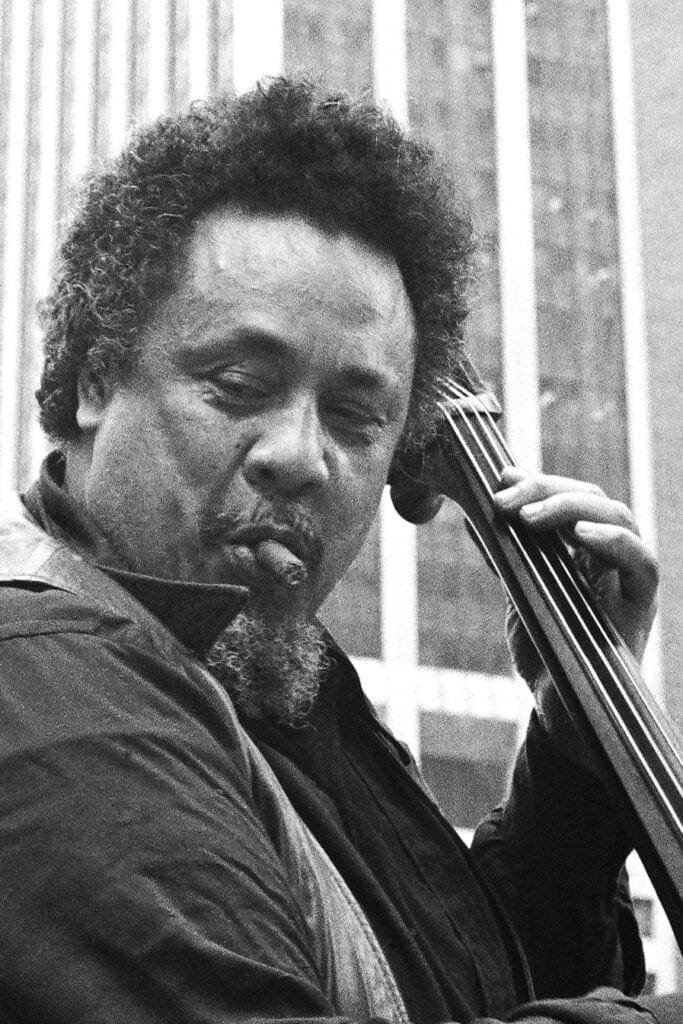Charles Mingus Biography: The Life And Legacy Of A Jazz Legend
Charles Mingus, one of the most influential figures in jazz history, left an indelible mark on the music world with his extraordinary talent and innovative approach to composition. His music transcended boundaries and redefined the genre, making him a true pioneer in jazz. As we delve into his biography, we uncover the remarkable journey of a man whose passion for music was matched only by his unyielding spirit.
Charles Mingus was not just a jazz musician; he was a visionary who used his art to express deep emotions and challenge societal norms. His life was a testament to perseverance and creativity, influencing generations of musicians. Understanding his legacy helps us appreciate the profound impact he had on jazz and the broader musical landscape.
Join us as we explore the fascinating life of Charles Mingus, from his early days to his rise as a jazz legend. This article will provide an in-depth look at his contributions to music, his struggles, and the lasting influence he left behind. Let’s embark on this journey to discover the man behind the music.
Read also:Kyle Carrozza Shows A Deep Dive Into His Unique Brand Of Comedy And Entertainment
Table of Contents:
- Biography
- Early Life
- Musical Influences
- Career
- Legacy
- Musical Style
- Personal Life
- Awards and Recognition
- Impact on Jazz
- Conclusion
Biography
Charles Mingus was born on April 22, 1922, in Nogales, Arizona. His journey in music began at a young age, influenced by his mother’s love for hymns and gospel music. Mingus’s passion for jazz developed as he grew, leading him to become one of the most celebrated double bassists and composers in jazz history.
Below is a summary of Charles Mingus's key personal information:
| Full Name | Charles Mingus Jr. |
|---|---|
| Date of Birth | April 22, 1922 |
| Place of Birth | Nogales, Arizona |
| Occupation | Musician, Composer, Bandleader |
| Genre | Jazz |
Early Life
Mingus’s early life was shaped by the musical environment around him. Growing up in Los Angeles, he was exposed to a variety of musical styles, from gospel to classical music. His initial training on the trombone and cello set the foundation for his future as a double bassist.
By the time he was a teenager, Mingus had already begun to make a name for himself in the local jazz scene. His talent and dedication were evident from an early age, setting the stage for his illustrious career.
Musical Influences
Charles Mingus was heavily influenced by the jazz greats of his time, including Duke Ellington and Charlie Parker. He also drew inspiration from classical composers like Duke Ellington, whose orchestral arrangements left a lasting impression on Mingus’s compositional style.
Read also:Daniel Sunjata The Versatile Actor Redefining Hollywood
Key Influences:
- Duke Ellington
- Charlie Parker
- Thelonious Monk
Career
1940s: The Beginnings
In the 1940s, Charles Mingus began his professional career, playing with bands led by Louis Armstrong and Lionel Hampton. These early experiences honed his skills and provided valuable exposure in the jazz world. Mingus’s talent as a bassist quickly gained recognition, paving the way for more significant opportunities.
1950s: The Rise to Fame
The 1950s marked a turning point in Mingus’s career. He formed the Jazz Workshop, a collective that allowed him to explore his compositional abilities further. Albums like "Pithecanthropus Erectus" and "Mingus Ah Um" showcased his innovative approach to jazz, earning him widespread acclaim.
Legacy
Charles Mingus’s legacy extends far beyond his music. He was a trailblazer who challenged the status quo and pushed the boundaries of jazz. His commitment to social justice and civil rights was reflected in his compositions, making him a voice for change in a turbulent era.
Even today, Mingus’s influence can be seen in the works of contemporary jazz musicians who continue to draw inspiration from his groundbreaking style.
Musical Style
Mingus’s musical style was characterized by its complexity and emotional depth. He blended elements of bebop, hard bop, and avant-garde jazz to create a unique sound that captivated audiences worldwide. His compositions often featured intricate harmonies and unexpected rhythms, challenging both musicians and listeners alike.
According to jazz historian Ted Gioia, “Mingus’s music was a reflection of his inner turmoil and passion, making it resonate deeply with those who listened.”
Personal Life
Charles Mingus’s personal life was as colorful as his music. He was known for his fiery temperament and strong opinions, which sometimes led to conflicts with fellow musicians and industry professionals. Despite these challenges, Mingus remained dedicated to his craft, pouring his heart and soul into his work.
He married four times and had several children, with his final wife, Sue Graham Mingus, playing a crucial role in preserving his legacy after his passing.
Awards and Recognition
Throughout his career, Charles Mingus received numerous awards and honors for his contributions to jazz. Some of the most notable include:
- Grammy Lifetime Achievement Award (posthumously)
- Induction into the DownBeat Jazz Hall of Fame
- NEA Jazz Masters Award
These accolades underscore the profound impact Mingus had on the music industry and his enduring legacy.
Impact on Jazz
Charles Mingus’s impact on jazz cannot be overstated. He revolutionized the genre by incorporating elements of classical music and avant-garde experimentation. His emphasis on collective improvisation and complex compositions set new standards for jazz musicians.
As jazz critic Gary Giddins noted, “Mingus expanded the possibilities of jazz, proving that the genre could be both intellectually stimulating and emotionally resonant.”
Conclusion
Charles Mingus was more than just a jazz musician; he was a visionary who transformed the genre with his unique style and unwavering dedication. His life and legacy continue to inspire musicians and fans alike, reminding us of the power of music to transcend boundaries and touch the soul.
We invite you to share your thoughts on Charles Mingus’s contributions to jazz in the comments below. Additionally, feel free to explore other articles on our site that delve into the rich history of jazz and its legendary figures. Together, let’s celebrate the enduring legacy of this jazz legend.
Article Recommendations


